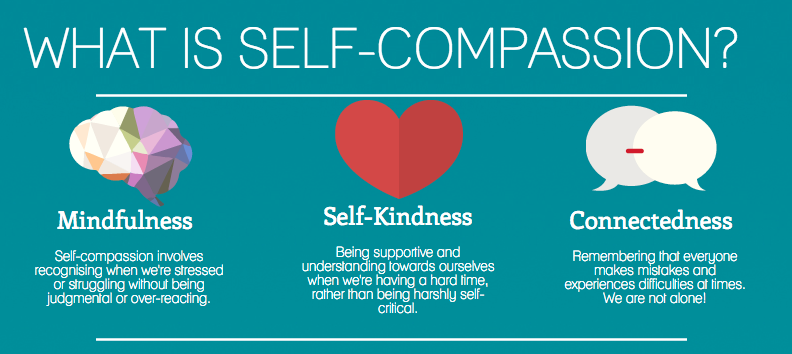Welcome
Welcome to my page on Mindful Self-Compassion or MSC for short. My goal with this page is to introduce you to resources for MSC and self-compassion.
On May 14, 2019, I became the only Mindful Self-Compassion Trained Teacher in Arkansas. In July 2019, I became trained to teach the Making Friends with Yourself program, the mindful self-compassion program for adolescents and young adults. I’m excited about the journey I’m on and can personally attest to the transformational power of self-compassion. This page provides information about MSC including resources to learn more about it. In the Fall 2019 semester, I’ll be offering classes to the public in Little Rock, Arkansas.
Overview of Mindful Self-Compassion
Mindful Self-Compassion (MSC) is defined as caring for ourselves as we would care for a cherished friend and is distinct from self-care and self-esteem. While self-care is often considered action to preserve or improve our health (including mental health) and self-esteem is considered how we feel about ourselves, self-compassion is considered a response to our own suffering. It does not attempt to change our suffering but simply respond to it in a different way than many of us were taught to do. It consists of three components: self-kindness (treating ourselves kindly), a sense of common humanity (our sense of connection to others), and mindful awareness (paying attention to the present moment). Self-kindness opens our hearts to suffering so we can give ourselves what we need. Common humanity opens us to our essential interrelatedness so that we know we aren’t alone. Mindfulness opens us to the present moment so we can accept our experience with greater ease. Together they comprise a state of warm-hearted, connected presence.
There are many benefits to mindful self-compassion. Research demonstrates that self-compassion is strongly associated with emotional wellbeing; less anxiety, depression and stress; maintenance of healthy habits such as diet and exercise; and satisfying personal relationships. Self-compassion can be learned by anyone, even those who didn’t receive enough affection in childhood or who feel uncomfortable when they are good to themselves. It is a courageous attitude that stands up to harm, including the harm that we unwittingly inflict on ourselves through self-criticism, self-isolation, and/or self-absorption. Self-compassion provides emotional strength and resilience, allowing us to admit our shortcomings, motivate ourselves with kindness, forgive ourselves when needed, relate wholeheartedly to others, and be more authentically ourselves.
Mindful Self-Compassion Training
MSC training programs are offered throughout the United States and the world as an eight-week program consisting of eight three-hour sessions along with a half-day retreat. It is also offered as a five-day intensive workshop. The training for this program is based on the Mindfulness Based Stress Reduction program, a well-known meditation program offered in the eight-week format. During the MSC program, participants learn a variety of practices in which to respond to their own suffering with self-compassion. MSC practices consist of both formal meditation (meditation for a dedicated amount of time) and informal practices (practices used in everyday life such while driving, at work, and in conversation with others). Those who attend the training do not need any meditation experience or knowledge. Moreover, this program is well suited for those who struggle to stay still (as I do) because the meditations do not require an rigid posture and participants are encouraged to find a comfortable position (which may be sitting in a chair, sitting on a meditation cushion, laying down, standing, or any combination of these) while doing the meditations and any of the exercises. The program also consists of more than meditation and includes exercises that involve soothing touch, walking, identifying one’s values, and other active exercises. Throughout the training, you will be encouraged to ask yourself “What do I need?” and to meet that need when you can. If this means declining to participate in an exercise or getting a cup of tea, you will be supported in doing so. At its core, this program encourages the practice of self-compassion while attending the self-compassion training.
The official and formal MSC course is an 9-session, 28-hour course that involves a significant commitment of time and energy by anyone who attends. Many people can’t commit the time and money to attend a course this long. Consequently, I’ve begun offering three-hour MSC hour workshops a few times a year. The fee is “by donation” with all funds going to a charity that has been identified in advance of the workshop. In 2024, I raised $1900 for the Little Free Food Pantry at St. Margaret’s Episcopal Church and Girls on the Run-Central Arkansas. If you’re not familiar with these programs, please check them out. If you’d like to receive information about my upcoming workshops, please fill out this form. I’ll only use your contact info to share info about my upcoming workshops.
Resources on Self-Compassion
Books:
The Mindful Self-Compassion Workbook: A Proven Way to Accept Yourself, Build Inner Strength, and Thrive by Kristin Neff and Chris Germer (2018)
Self-compassion: the proven power of being kind to yourself by Kristin Neff (2015)
The mindful path to self-compassion: freeing yourself from destructive thoughts and emotions by Chris Germer (2009)
Articles:
The transformative effects of mindful self-compassion by Kristin Neff and Chris Germer (2019)
Why fierce women need self-compassion by Kristin Neff (2018)
Why self-compassion trumps self-esteem by Kristin Neff (2017)
What self-compassion is not by Center for Mindful Self-Compassion (2017)
The five myths of self-compassion by Kristin Neff (2015)
